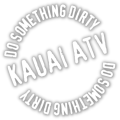FISHING FOR PEACOCK BASS ON KAUAI

If you’re looking for an unforgettable fishing experience in Kauai, peacock bass fishing is a must-try. Peacock bass is one of the most prized game fish in Hawaii, and Kauai offers some of the best fishing grounds for this species. Whether you’re a seasoned angler or a novice, fishing for peacock bass in Kauai is an adventure that you won’t want to miss.
What are peacock bass?
Peacock bass, also known as “tucunare”, are native to South America but were introduced to Hawaii in the 1950s to control tilapia populations. They are now established in many freshwater lakes and streams in Hawaii, including Kauai. Peacock bass are aggressive and hard-fighting fish that can reach up to 20 pounds, although most fish caught in Kauai weigh between 2 to 8 pounds.
If you are looking for some peacock bass action in the US, you will need to travel. The only two states in the US that have managed to contain populations of peacock bass are Hawaii and Southern Florida.
Where To Find Peacock Bass on Kauai
In Kauai, you can fish for Peacock Bass in the island’s rivers, streams, and the Waita Reservoir.
The Waita Reservoir is a popular destination for anglers looking to catch Peacock Bass. The reservoir is located on the eastern side of the island and covers over 400 acres, making it thethe largest source of freshwater in Hawaii. The Peacock Bass in the Waita Reservoir is known to grow to impressive sizes, with some specimens weighing over 8 pounds.
In addition to the Waita Reservoir, there are also several rivers and streams on Kauai where you can fish for Peacock Bass. The Wailua River is one of the most popular destinations for Peacock Bass fishing, and it is located on the eastern side of the island. The Wailua Reservoir is another place you can catch these fish.
Koloa, Kauai Bass Fishing Tour On The Waita Reservoir
Experience the thrill of fishing out on the Waita Reservoir in a luxurious 17″ aluminum bass boat. Catch and release the wide variety of species ready to take your bait, like big mouth bass, tilapia, and tucunare (aka peacock bass). Your private guide will lead you to carefully selected “sweet spots” so you can catch more fish faster and also show you exciting destinations that make this tropical paradise unique. Enjoy every moment out on the water and come back again for more amazing days of fishing.
What To Know Before Fishing For Peacock Bass on Kauai
If you decide to try it by yourself with no guide or tours, be sure to keep these things in mind.
- Know the regulations: Before you start fishing, make sure you’re aware of the regulations for the area you’ll be fishing in. These may include size and catch limits, as well as restrictions on the type of bait or lures you can use. You can find information on fishing regulations in Hawaii on the state’s Department of Land and Natural Resources website.
- Get your gear: Peacock bass can be caught using a variety of lures and baits, but the most popular methods are using small jigs, topwater lures, and live bait like worms or small fish. You’ll also need a fishing rod and reel suitable for the size of fish you’re targeting. Some local fishing supply shops on Kauai may rent out the fishing gear if you don’t have your own.
- Choose your fishing spot: Peacock bass can be found in streams, rivers, and other reservoirs spread out throughout the island. Keep in mind many of these places might be private property, and fishing on them will be considered trespassing. Do your research.
- Be patient and persistent: Peacock bass can be a challenging fish to catch, but with patience and persistence, you can increase your chances of success. Try different lures and baits, and be prepared to move to different spots if you’re not having luck in one area.
Respect the environment: When fishing in Kauai’s streams, rivers, and reservoirs, it’s important to respect the environment and practice responsible fishing. This means properly disposing of any trash, not damaging vegetation or wildlife, and avoiding fishing in sensitive areas.
